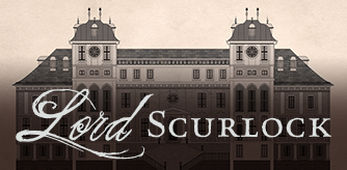Wild Blue Setting
| Wild Blue Yonder | |
|---|---|
 | |
| GM | |
| Benjamin | |
| Ships | |
| The Owl | |
| Crew | |
| Cyrus Vance · Kale Arkam · Snargle | |
| Passengers | |
| Natasha Syri · Naomi Bishop | |
| Contacts | |
| Lando Calrose | |
| Enemies | |
| Adm. Oz | |
| References | |
|
Setting · House Rules Adventure Log |
| Wild Blue Yonder 2 The Scurlock Mysteries | |
|---|---|
 | |
| GM | |
| Benjamin | |
| Scurlock Brothers | |
| Arras · Tertius · Baston · Edward | |
| Residents | |
| Setarra · Jedmund · House Staff | |
| Discoveries | |
| The Manor · Secrets · Curios | |
| Creditors | |
|
Magistrate Holpine · Viceroy Skein Constable Tume · Mr. Plom Brance Verley · | |
| Other Imperials | |
| Lady Blackbird · Karkus Kerp | |
| References | |
|
Setting · House Rules Adventure Log |
Geography
The Wild Blue
Ilyssium: Capital of the Empire
Docks District
The very end of a cliff-fronted peninsula, the natural depth of the lakeshore here made it an ideal location to dock the great vessels of the Empire, even before they took to the Aether.
Lakeshore District
As might be gathered from the name, this district consists of the narrow strip of land between the shores of the lake before the peninsula widens out again for the Docks district. Caught in a peculiar cycle of gentrification and slumification the district boast both waring gangs and one of the Queen's apartment.
Parks District
Imperial Society
People and Governance
Wealth and Money
Gold Crown
The Gold Crown, usually just referred to as the Crown is officially the monetary standard of the Empire by which all other currencies are measured, declared so by Imperial Edict during the monetary reform act years ago. It is, however, also a denomination of value designed for governmental and mercantile use, with little practical application to all but the nobility. The regular economy deals primarily instead with Sovereigns, set at 1/100th of a Crown, which is itself split into 100 Pence. Coins with various intermediate values also exit.
Labor Costs
One Sovereign is will typically purchase a day's unskilled labor in Illysium. Unrated Sailers, Housekeepers, and Messengers all start about the same price, though may go up to a sovereign and a half. The Coastguard are paid slightly more than this, while the regular soldiery of the Empire is paid a bit less. Given the usual 6 day work weeks (at 10 hours per day), this equates out to approximately 3 crowns per year.
One and a Half Sovereigns a day will typically purchase a day's labor of more skilled labor, such as Servants, Shoemakers, Tailors, Millers, and Postmen. Alternately, it will typically purchase a day's labor for more dangerous occupations, such as miners, chemical workers, coal heavers, and chimney sweeps.
One and three-quarters of a Sovereign will typically purchase a day's labor from an artesian or smith. This is also the going rate for Able Seamen, Dockyard Workers, Soap, and tool makers.
Two Sovereigns a day is the expected salary for Bakers, Butchers, and the makers of both airships and musical instruments. Printers, Binders, and glassblowers could also command this salary.
Three Sovereigns a day can be commanded by the most skilled of the working class, including scientific and medical instrument makers, watchmakers, and jewelers. This is also the salary commanded by some professionals, such as an engine driver. This equates out to approximately 9 crowns per year.
A butler's annual salary could run from twelve to fourty crowns a year (or four to twelve sovereigns a day), while a Cook's annual salary runs from just under six to fifteen. After completing their apprenticeship, a clerk can expect an annual salary of nine or then Crown (about 3 Sovereigns a day), though senior clerks or those in prestigious banks can earn ten times that. An Engineer can expect close to thirty crowns per year, depending on the nature and consistency of their work.
At the low end of Good Society, Officers of the Line are expected to start their families on a salary of sixty to ninty crowns a year. Gentlemen with some restraint and budgetary skill can present themselves as eligible with one hundred and fifty crowns a year (or at least look like it). Incomes above three hundred crowns a year puts one solidly into the category of well off, so long as the family is not particularly wasteful.
